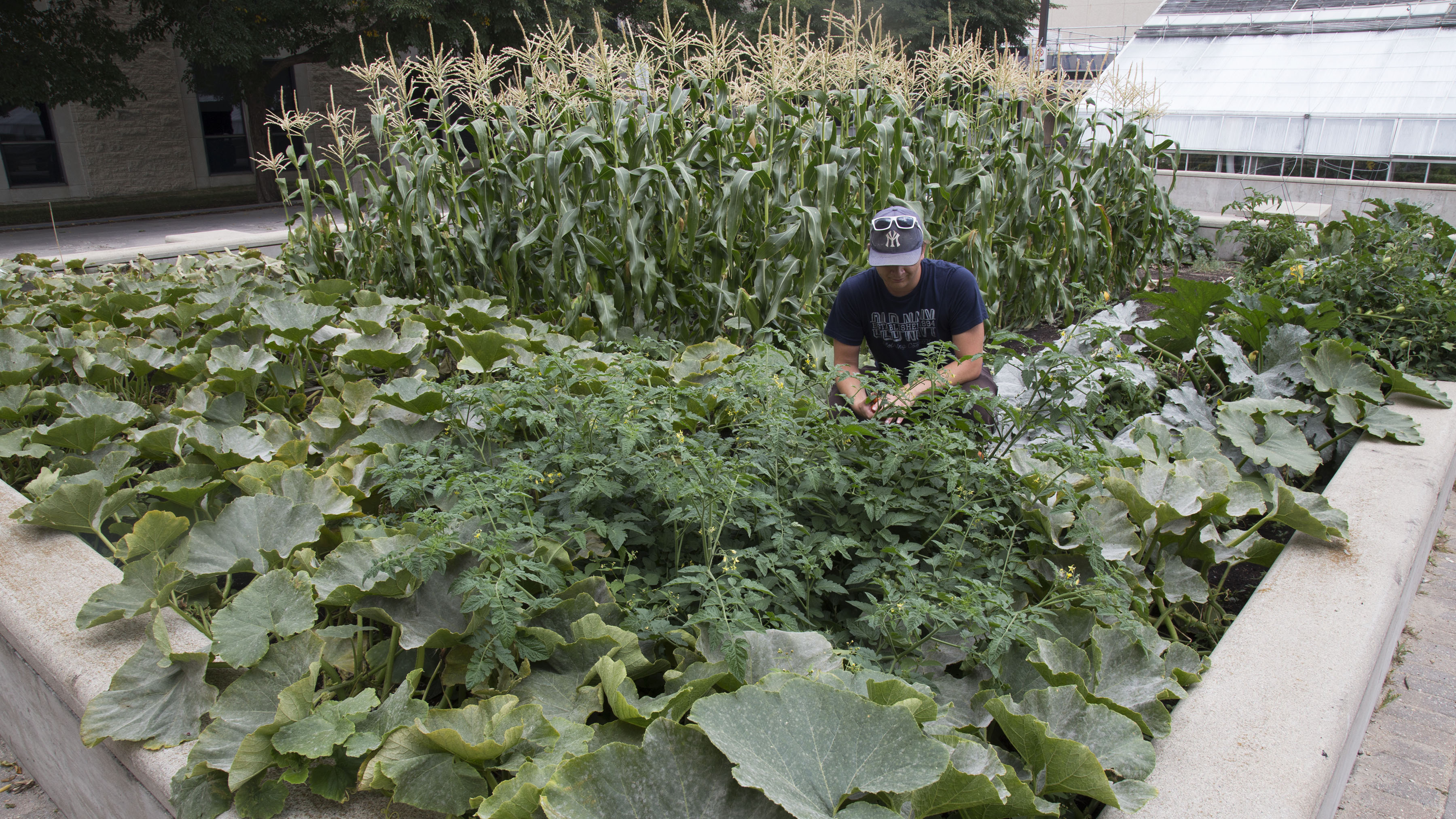It is an exciting time for local food crop farmers and garden owners.
Harvest season has arrived and farmers’ markets are flourishing with fresh produce from varieties of freshly picked fruits, vegetables and legumes, to ready homemade pastries and desserts.
Close to home, right at the heart of the UMSU University Centre, the students’ union-owned Degrees restaurant sources some of its fruits, vegetables, grains, herbs and legumes from directly from the Fort Garry campus through the UMSU campus gardens.
The gardens are a student-run initiative that operates mainly on the work of volunteers. Several plots of soil are available to students and community members. Student volunteers seed produce in the Buller greenhouse at the end of April and transplant sprouts into the garden beds.
This year, Degrees harvested a variety of crops from campus gardens, including tomatoes, rhubarb, zucchini, watermelon, cantaloupe, turnips, beets, habanero peppers, squash and kale.
Degrees restaurant and catering manager Ryan Woods said that while Degrees makes use of the fresh produce in its recipes, it also offers an opportunity to provide healthy food throughout campus.
“It all goes to Degrees, and then basically the kitchen gets to cherry-pick what they want out of it and then we sell the rest,” Woods said.
“We take it down [to the main floor of University Centre], we put it on a table, we sell it really cheap to the university community.”
Degrees has long been a vocal advocate for eco-responsibility and sustainability — it is one of few restaurants in Canada with a level 3 “Leaf Certification,” the highest designation from Canadian non-profit food service certification program LEAF that recognizes a “top level of environmental sustainability.”
The gardens Degrees draw produce from do not use any preventative pesticides. The volunteer gardeners monitor the crops for pests, and should they arise, an insecticidal soap is used.
Matthew Peters, a fifth-year U of M student, maintained this season’s gardens, carrying out the planting, weeding, watering and harvesting over the summer, with occasional help from volunteers.
“It is extremely rewarding to watch all your time and effort result in a beautiful and thriving garden,” said Peters, “culminating once you are able to start harvesting — quite literally — the fruits of your labours and then later being able to provide those fruits to the university community.”
He added that he hoped students who see the colourful gardens or taste the fresh produce are encouraged to look to their own potential as gardeners.
“It is my hope that seeing projects like this will inspire others, especially students, to see the potential in the space that they have,” said Peters.
“People would see that even if you just start with a few plants here and there, the resulting plants and fresh produce with all their benefits to health and the environment are well worth the monetary and temporal costs.”
Peters also noted the importance of furthering the U of M’s sustainability efforts.
“I think it would be great to see interest in it grow, allowing it to expand in scope which would allow more produce to make its way into the restaurant as an increasingly reliable source of ingredients for the summer, as well as providing more fresh produce for the university community as an alternative option.”
While the bulk of this year’s produce has already been harvested, many crops like tomatoes, cantaloupe, pumpkin, beets, squash, and corn will continue to yield through September and some into October.



